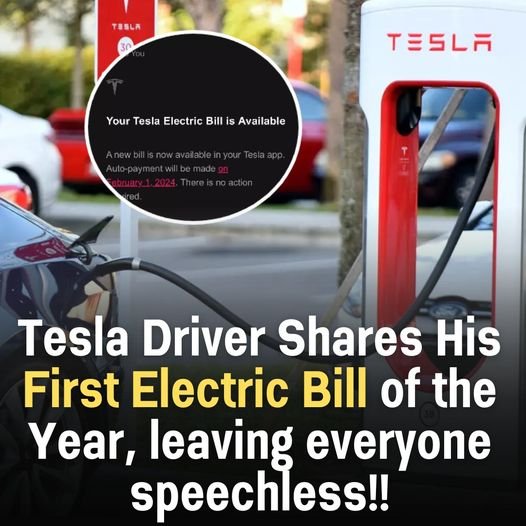The surprising revelation of a Tesla owner’s minimal electricity cost, shared on social media, has sparked interest and raised eyebrows about the actual expenses of running an electric car. Contrary to the common perception that owning and operating a Tesla might come with a hefty price tag, this particular Tesla owner showcased an astonishingly low electricity bill after a year of driving – a mere $2.37 (£1.89).
The post, shared on X (formerly Twitter), was accompanied by a sarcastic caption, humorously pointing out that it was the user’s first electricity bill in the past 12 months. The unexpectedly low figure challenged the notion that maintaining an electric car, especially one from Elon Musk’s Tesla, would result in substantial monthly electricity costs.
Upon closer examination of the user’s setup, it became evident that a crucial factor contributing to the low electricity cost was the presence of a Tesla Powerwall. The user’s cover photo prominently displayed this device, which is a substantial battery designed to integrate with a home’s power system. Notably, the Powerwall proves particularly advantageous for homeowners with solar panels.
In practical terms, the Powerwall stores excess energy generated by solar panels during the day, utilizing it later to charge the electric car during off-peak hours. This efficient energy storage and utilization mechanism significantly reduces the reliance on traditional electricity sources and can lead to remarkably low monthly bills.
However, it’s essential to note that the initial investment in a Tesla Powerwall is not trivial. According to Forbes, these batteries start at approximately $11,500 (£9,000) and can go up to $15,000 (£11,800). Despite this upfront cost, the Powerwall appears to be a strategic investment for those looking to minimize ongoing operational expenses associated with charging electric vehicles.
The Tesla owner’s revelation not only highlights the potential cost-efficiency of electric vehicles but also underscores the role of advanced energy storage solutions, like the Powerwall, in reshaping the landscape of sustainable and economical transportation. As electric cars become more prevalent, innovations in energy storage are likely to play a crucial role in optimizing their long-term affordability and environmental sustainability.



